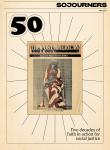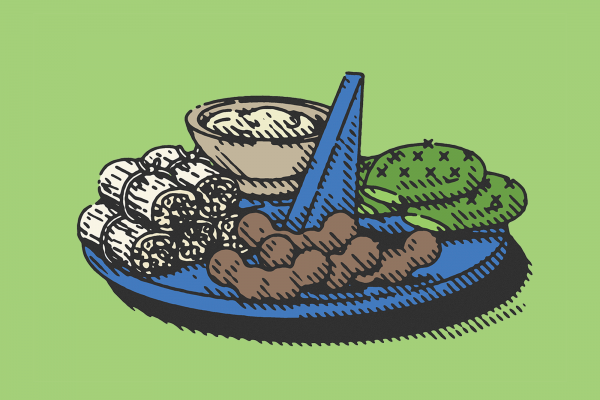“HAY MÁS TIEMPO que vida” was my dad’s refrain every time I was stressed and weary. “There is more time than life.” His simple words had profound implications.
Being present to life is difficult. Life demands that we “rise and grind.” Reward comes to those who make the most of the time they’ve been given. Time is money. Time is a commodity we trade. The promise of life is the goal of all this grinding—or retirement, if we are privileged.
During the pandemic, I’ve pushed against beliefs that commodify time. I’ve cooked the foods that nourished my ancestors: tamales verdes, atole de tamarindo, and nopalitos. My senses have been awakened through mixing the nixtamalized corn flour with water and fat until it reached the right texture, peeling and deseeding each tamarind pod, cutting the nopal (cactus) and cooking it with a few tomatillo husks to remove the slime.
The preparation of these foods forces me to notice the rough spots on the cacti where thorns still make their home, to smell the acid scent of tamarind in the pulp clinging to my fingers; it invites me to play with the unruly dough that believes its place is on top of the corn husk and not inside. If death shows up in separation, life sprouts in connection.
But on most mornings, I check my email as soon as I wake; on some nights, I work through to the early hours of the morning. This grind separates me from life. Is this the price we must pay for entrance into delight, rest, or relationships?
Jesus knows this dilemma and offers a way forward: “The thief comes only to steal and kill and destroy. I came that they may have life and have it abundantly” (John 10:10). The life Jesus presents is abundant, flourishing, overflowing. He notices the widow bringing her two cents to the Temple treasury; his gaze is on the woman who had been bent over for 18 years; he feels the person who touched his garments. Jesus made space to be present, to notice.
The voracious hunger of the rich, the “thieves” who take more than they need, speaks death over our souls. Economic “efficiencies” in an industrialized production process too often serve to move money to the top while stealing the life out of life. It’s hard for us to know how even our food was produced. For example, the most accessible masa for tamales in the United States is made with genetically modified corn from the U.S. that is sold to a global company in Mexico (the birthplace of corn) for branding and processing in U.S.-based factories, then placed in local U.S. grocery stores and sold as a Mexican product. Too often we are blocked from the lives of those people and environments who give life to our food before it reaches us. We are separated from their stories.
Life longs to have a relationship with us. Reconnecting with the people involved in the web of production is one way of moving toward life. I say a simple prayer before dinner: “Te pedimos por todos los que colaboraron en esta mesa que tengan trabajos y descansos justos, mesas abudantes y alegres.” A reminder of those along the way that brought this food to our table. I ask that they have full and joyful tables, fair wages, and abundant rest.
My dad’s sabiduría (wisdom) offers me a prophetic invitation to something he did not experience. While reminding me to be present to my life, his life was one of intense labor—as if he was preparing the way for my rest, joy, and abundant life. Hay más tiempo que vida.

Got something to say about what you're reading? We value your feedback!







